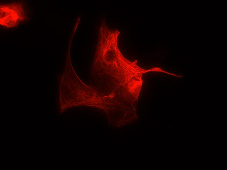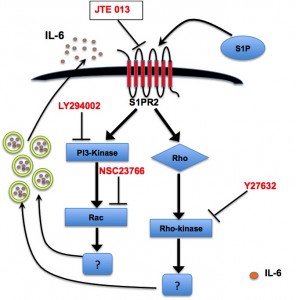Role of lysophospholipids in pregnancy maintenance.
Aberrant development of the placenta and receptivity of uterus has been linked to implantation, early pregnancy losses and different pregnancy-related pathologies like preeclampsia and intrauterine growth restriction (IUGR). Endometrium decidualization and trophoblast (villous and extravillous) functions such as adhesion, invasion, migration and secretion are pivotal processes for placental development fetus growth, and essential for pregnancy maintenance.
A wide array of cytokines derived from placenta or endometrium is essential for decidualization, blastocyst implantation, normal placental development and successful pregnancy. Cytokine secretion is a complex and tightly controlled process, and intracellular pathways regulating secretion are often uniquely tailored to each cytokine and cell type.
Lysophospholipids (LPA and S1P) are critical regulators of various cellular processes including survival, differentiation, proliferation and migration, and have emerging roles in medicine. Their actions are mediated by activating a family of G-protein coupled receptors (GPCRs; S1PR1-5 and LPAR1-6) that have diverse biological roles owing to the heterogeneity of their signal transduction pathways. The possible roles of lysophospholipids in embryo implantation and spacing, decidualization, pregnancy maintenance are sparsely known and the field of lysophospholipids in reproductive system is still in the beginning stage. The possible role LPA in embryo implantation, embryo spacing has been reported. My lab has found that the lysophospholipids receptors are differentially regulated during early pregnancy (unpublished data) suggesting that one of the LPA receptors may be a potential biomarker for successful pregnancy and may be useful in artificial reproductive technology.
We reported recently that S1P regulates cytokine IL 6 secretion in trophoblast and might be a negative regulator of its differentiation. The aims of the project are to identify the role of receptor subtypes specific lysophospholipids signalling during pregnancy complication, and identify the new therapeutic strategies such as use of LPA and/or S1P-receptor subtype-specific agonist and/or inhibitors.
Signaling pathway regulating cytokine IL-6 secretion




